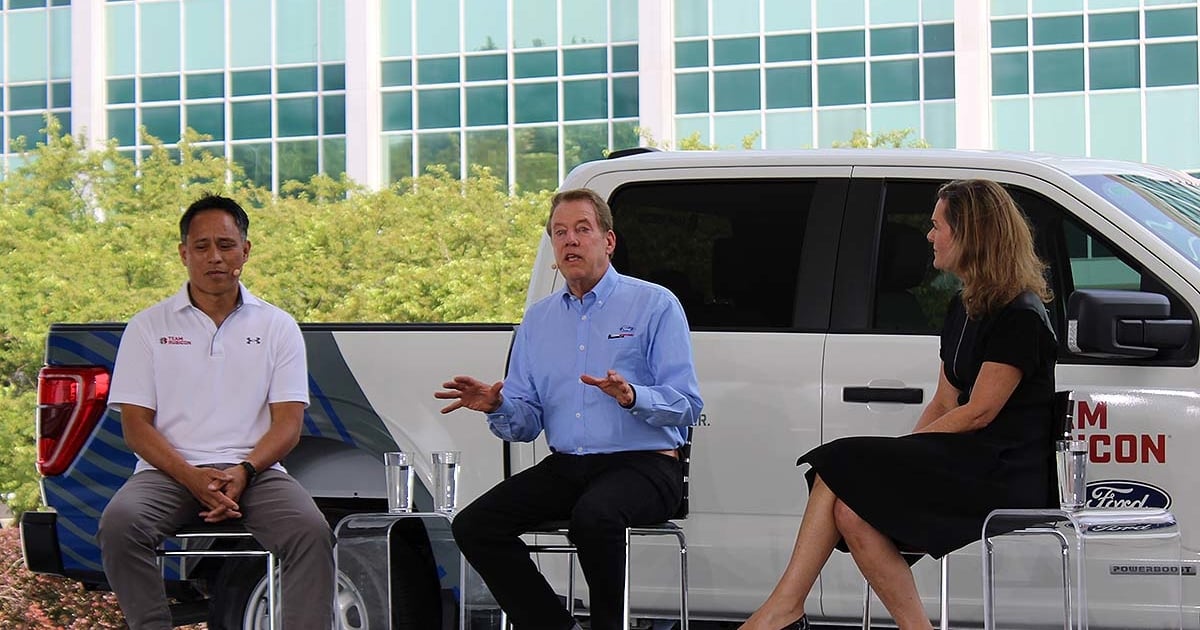
DETROIT — Ford Motor Co. Executive Chair Bill Ford on Tuesday pushed back on aggressive rhetoric from new UAW officials who have tried to position the Detroit 3 automakers as adversaries of the union workers they employ.
In his inaugural address to members in March, UAW President Shawn Fain referred to corporations such as the Detroit 3 as the union’s “one true enemy” and told members to prepare for “war.” In a virtual town hall last month, Vice President Rich Boyer noted how much the Detroit 3 CEOs made in relation to the average worker, telling members to “remember that when they say we’re family. We’re not family.”
Bill Ford balked at that characterization.
“That’s just wrong,” he said on the sidelines of an event announcing a $5.8 million investment in a disaster relief organization. “Every plant I go to, the members in that plant run up and tell me about their family stories.
“I was just at Kentucky Truck Plant and met with a whole room of multigenerational employees. We are a family company, despite what anybody says.”
Ford employs more UAW members and builds more vehicles in the U.S. than any other automaker — facts executives are quick to tout.
“The day that our employees are considered my enemy is the day I’ll retire,” Ford said. “The head of the UAW may consider us his enemy, but I’ll never consider our employees our enemy.”
Contracts at Ford, General Motors and Stellantis expire Sept. 14. The union is expected to aggressively push for higher wages, better benefits and more job protections.
Ford said he has not yet met with Fain, although he speaks “frequently” with Vice President Chuck Browning, who leads the UAW’s Ford department. He said he’s optimistic both sides will be able to reach an agreement.
“I’ve been part of every negotiations since 1982, and the rhetoric around this time of year always heats up,” Ford said. “You just have to fight through all that and say, what are the real issues, where is the common ground, and how can we move forward? And I believe we’ll do that.”

